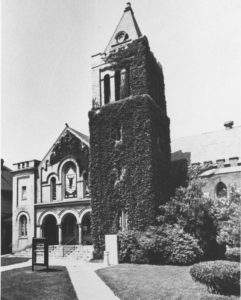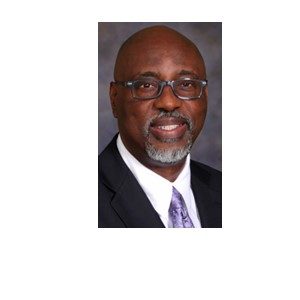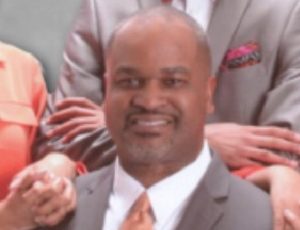We’re pleased to be re-launching our NC Field blog, after several years’ hiatus! Our thanks to Truman Austin, a senior at Chapel Hill’s Emerson Waldorf School, for sharing this article with us. Special thanks as well to Pastor Rev. Dr. Reginald Stephens, Minister of Music Raymond Johnson, and the congregation of White Rock Baptist Church, for the opportunity to learn about this important and historic church.

By Truman Austin
Every Sunday morning at 10:30, the strains of the White Rock Baptist Church band and vocalists welcome in the congregation to worship. With a grand steeple, spacious chapel, vibrant stained glass windows, and a large, intricate organ, the church holds seating capacity of 1300 people. The music is met with standing and outreached hands, “yeses” and “hallelujahs.” This opening enlivens the senses of the congregation and prepares them for the reason they came–the sermon.
The music must all build the energy of the congregation up to the moment of the spoken word. Raymond Johnson, who curates the pieces and leads the music, grew up in a tradition of the Baptist church, and has been a part of ministry since his teenage years. To Mr. Johnson it is important that White Rock has its own particular style, but also stays within what he calls the “heartbeat” of other Baptist churches. Music is his ministry. According to him, “It is not a gig,” this is not for performance. It is to worship.” If the congregation are sitting and watching, Mr. Johnson will welcome them to sing, move, and stand to create a feeling that everyone is a part of the music. Keeping the congregation involved and invested is what gets them ready for the sermon.

Since 1995, Pastor Reginald Stephens has led from the pulpit. His sermons move from conversational, to “drive-point-home,” to intimate – all this with impeccable timing, humor, and a strong feel for the tempo of the congregation.
When I met with him recently, he showed me the pantheon of photographs on his wall of all those who were part of what he considers “major shapings of my spiritual life as mentor, leaders.” At age five, he was so taken with the first pastor he ever heard, Dennis Russell, that he began preaching to the mirror!
After seminary and a pastorship in Kentucky, Pastor Stephens made the move to Durham, thanks to one man, Samuel Proctor. Samuel Proctor was a friend of Dr. Martin Luther King, Jr., and an influential figure in the Civil Rights movement as well as a baptist preacher.
“Well,” Pastor Stephens told me, “Proctor came to Duke as a visiting professor, and this church was vacant, and they had 125 applicants of which they were not satisfied with any of them. Proctor … recommended me and another guy from Virginia – he always hedged his bet… and the Chairman of the Deacons called and set up a time for me to come over here and deliver a message. Now if you want to hear a funny part of the story…John Lewis, this Chairman of the Deacons, he was on the search committee. Lewis called me in Kentucky…‘Dr. Proctor recommended you. We would like to have you come preach for us. Y’know, we’re searching for a pastor. When do you want to come?’ And I said, ‘No I can’t do that, I can’t do that.’ And he said, ‘Well, why not?’ And I said, ‘I got to go down to San Antonio to preach a service.’ He said, ‘San Antonio, Texas?’ I said, Yeah.” He said, ‘Well, perhaps you know my son?’ And I said, ‘Well, who’s your son?’ He said, ‘John Lewis.’ I said, ‘Really?’ At the time John Jr. was the coach of the San Antonio Spurs, and that was the year the Spurs were thought to be the best team in the NBA. They had the Admiral, they had Rodman, they had somebody else, and they were marching to the NBA championship. And this was in May or something, sometime in May that year. And so I said, ‘Your son’s the coach of the Spurs?!’ … I said, ‘So when do you want me to come preach?’”

This began the 27 years Pastor Stephens has spent at White Rock–a church that has an accumulated aura and history in the Durham faith community. Organized in 1866 by a former enslaved person, Mrs. Margeret Faucett, this flagship church has fostered political activism and social causes, and given a home for important meetings within the African American community.
Pastor Stephens came into “an environment where they were more steeped in the politics and business life of a community, and not as much of the spiritual influence of how that should shape the politics and business. And that’s what I have been trying to do for more than 20 years. I’ve been saying, ‘Yeah, you should be politically active, and yeah, you should be interested in business ventures, etc., so forth, and be community leaders. However, your theology should shape your politics, your theology should shape your business acumen and ethics and morals.’”
This is a mission Pastor Stephens has already accomplished. With more than 50 ministries under the church’s direction, White Rock has been able to use their theology and commitment to God to reach out into their community and be a force of aid and good.
To Pastor Stephens the art of the sermon is an extension of your own personality. “They, young pastors, begin to imitate others. So you get a little bit of this one, a little bit of that one, of that one. And as you grow and become more confident in your ability to hear the Holy Spirit speak to your heart and develop your own theology, you begin to form your own personality. And once you form your own personality you become more confident…So I can’t imitate someone else to be genuine, so I begin to assimilate some of what I learned.” Dr. Stephens has learned from figures such as Samuel Proctor and Gardner Taylor, known as the “dean of American preaching.” Every week Pastor Stephens puts these skills into practice at the pulpit.
Leaving the service, I was met with many outreached hands, kind words, and friendly faces. There is a strong spirit and tradition found at White Rock Baptist Church – one of achievement, openness, and proud heritage.
Leave a Reply